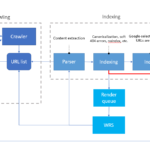Revolutionizing Drug Discovery: How Generative AI is Transforming the Pharmaceutical Industry
In an enlightening discussion, Suraj Kumar, Director of Technology Solutions at Persistent Systems, reveals how generative AI is reshaping drug discovery and significantly lowering costs in the pharmaceutical sector. This innovative technology is not only streamlining operations but also unlocking vast economic potential for the industry.
Generative AI vs. Traditional Drug Discovery Methods: A Paradigm Shift
Traditionally, the pharmaceutical industry relied on time-consuming and costly methods for drug discovery and development. Early AI integrations, while helpful, were often inefficient and slow, leading to high expenses and complex operational issues. The industry also grappled with challenges such as workforce shortages and rising inflation, which amplified the need for groundbreaking solutions.
Generative AI represents a transformative advancement, enhancing drug discovery by accelerating research, optimizing clinical trials, and facilitating faster regulatory approvals. This technology is revolutionizing the industry by improving pattern recognition and reducing costs. Experts estimate that generative AI could create between $60 billion and $110 billion in economic value annually for the pharmaceutical and medical-product industries.
Enhancing Drug Discovery with AI: Tackling Complex Scientific Challenges
Data analysis is a primary driver for AI adoption, with 42% of companies utilizing AI for this purpose. In the pharmaceutical sector, AI technologies play a crucial role in analyzing large and complex datasets. These AI tools can uncover intricate patterns and correlations, drastically accelerating the drug discovery process. For instance, AI algorithms can process millions of chemical compounds in just hours, a task that would traditionally take years to complete.
AI also excels in simulating biological systems and predicting drug interactions, which helps in identifying promising drug candidates more efficiently. By integrating personalized data such as genetic and environmental factors, AI can tailor drug discovery processes to individual profiles. This level of customization enhances the accuracy of predictions and streamlines the testing process. The significant role of AI was particularly evident during the COVID-19 vaccine development, where it expedited trials and distribution, demonstrating its capability to address global health crises swiftly.
AI in Clinical Trials: Predicting Patient Responses and Accelerating Timelines
Currently, only 14% of drugs that enter phase-1 clinical trials achieve FDA approval. AI’s ability to simulate a wide range of patient responses and predict potential adverse effects is poised to improve the efficiency of clinical trials. AI-driven models can create biological simulations that reflect variations in patient responses based on age, gender, genetics, and medical history, thereby providing a more comprehensive understanding of how drugs might perform in diverse populations.
Furthermore, AI enables virtual clinical trials through extensive data analysis, addressing many preliminary challenges and significantly reducing the time to market. By predicting possible complications and adjusting trial protocols proactively, AI minimizes the risk of unforeseen issues that could delay or impede trial progress.
Reducing Clinical Trial Costs with AI
Clinical trials are notorious for their high costs, spanning multiple phases, extensive candidate testing, and lengthy timelines. This often leads to soaring R&D expenses and delays in bringing drugs to market, affecting both pharmaceutical companies and patients awaiting new treatments.
AI has the potential to cut these costs substantially. By streamlining trial processes and reducing the time required for each phase, AI could save the pharmaceutical industry up to $54 billion annually in R&D expenditures. This efficiency not only benefits companies by maximizing their resources but also accelerates the availability of innovative treatments for patients.
The Future of Drug Discovery with AI
Generative AI is at the forefront of a new era in drug discovery, offering unprecedented opportunities for efficiency and cost savings. As this technology continues to evolve, its impact on the pharmaceutical industry is expected to grow, bringing transformative changes that could revolutionize how new drugs are discovered, tested, and brought to market.
References:
- PwC’s Industry Insights: [Link](https://www.pwc.com/us/en/industries/health-industries/library/behind-the-numbers.html)
- McKinsey on Generative AI’s Economic Potential: [Link](https://www.mckinsey.com/capabilities/mckinsey-digital/our-insights/the-economic-potential-of-generative-ai-the-next-productivity-frontier)
- IBM Report on AI’s Impact: [Link](https://www.ibm.com/downloads/cas/GVAGA3JP)
- ScienceDirect Article: [Link](https://www.sciencedirect.com/science/article/abs/pii/S003991402400328X)
- NIH Study on AI in Vaccine Development: [Link](https://www.ncbi.nlm.nih.gov/pmc/articles/PMC9279074/#:~:text=AI%20was%20successfully%20employed%20by,met%20the%20needs%20of%20individuals.)
- MIT Sloan Study on Clinical Trials Success Rates: [Link](https://mitsloan.mit.edu/press/measuring-risks-and-rewards-drug-development-new-research-mit-shows-success-rates-clinical-trials-are-higher-previously-thought#:~:text=Cambridge%2C%20Mass.%2C%20January%2031%2C%202018%20%E2%80%93%E2%80%93A%20new%20study%2A,that%20is%20much%20higher%20than%20previous%20studies%20indicate.)
- ITIF Report on AI in Pharmaceuticals: [Link](https://itif.org/publications/2020/12/07/fact-week-artificial-intelligence-can-save-pharmaceutical-companies-almost/)









